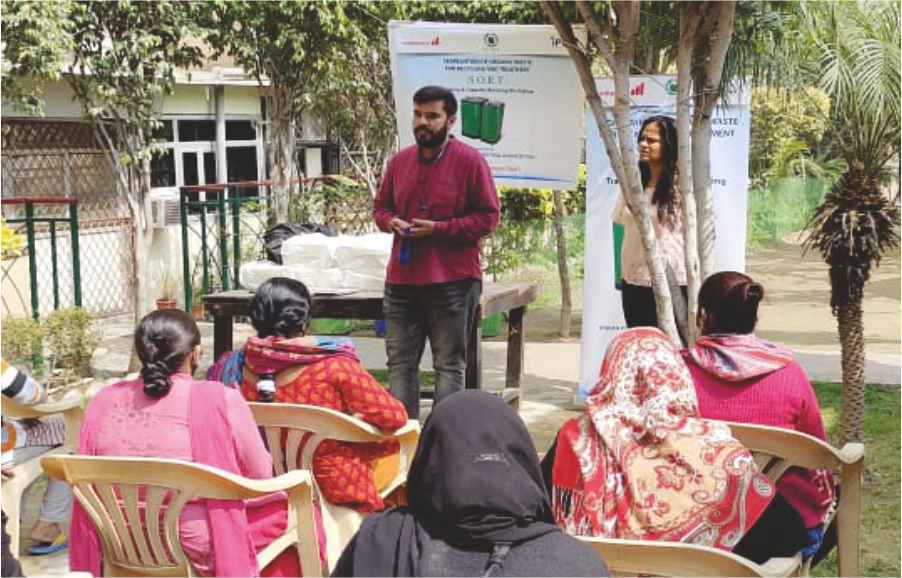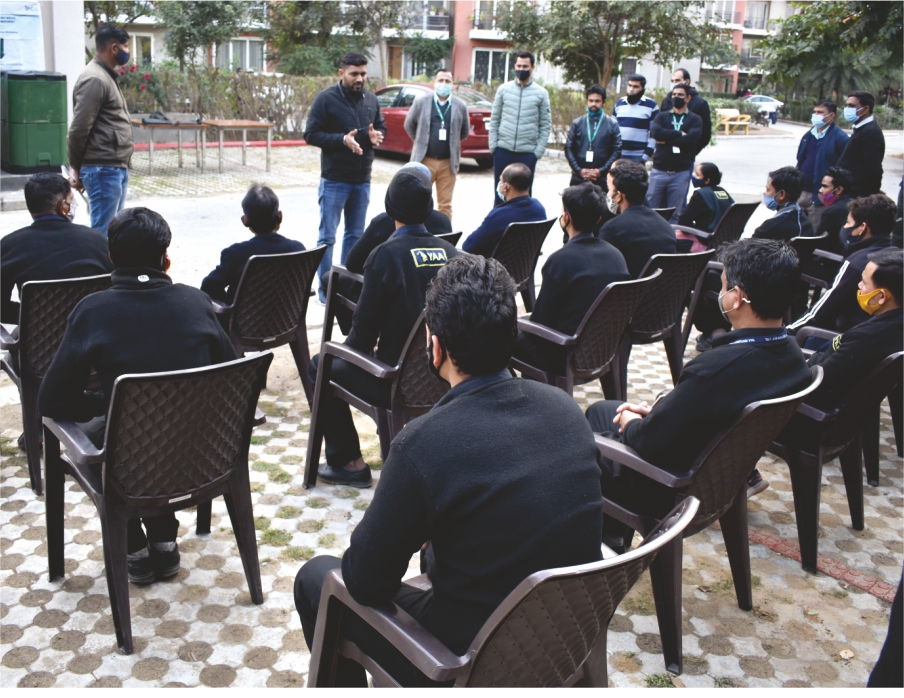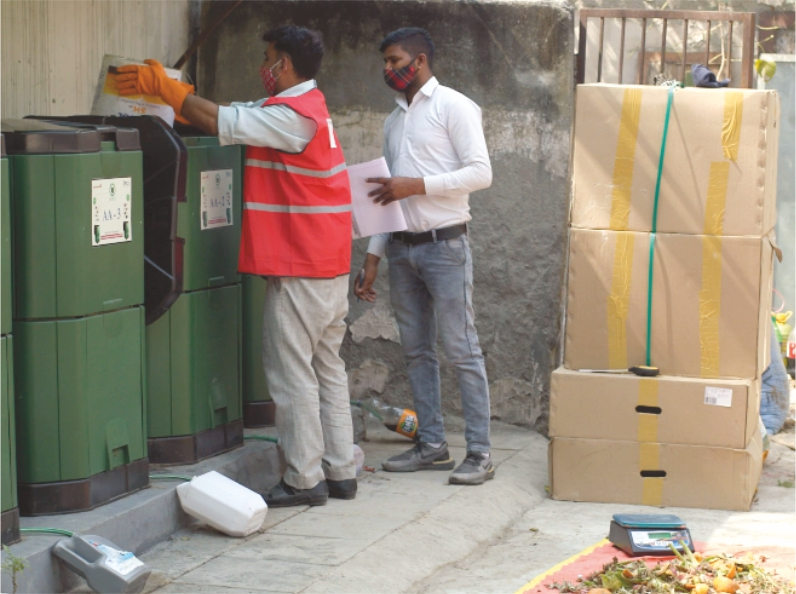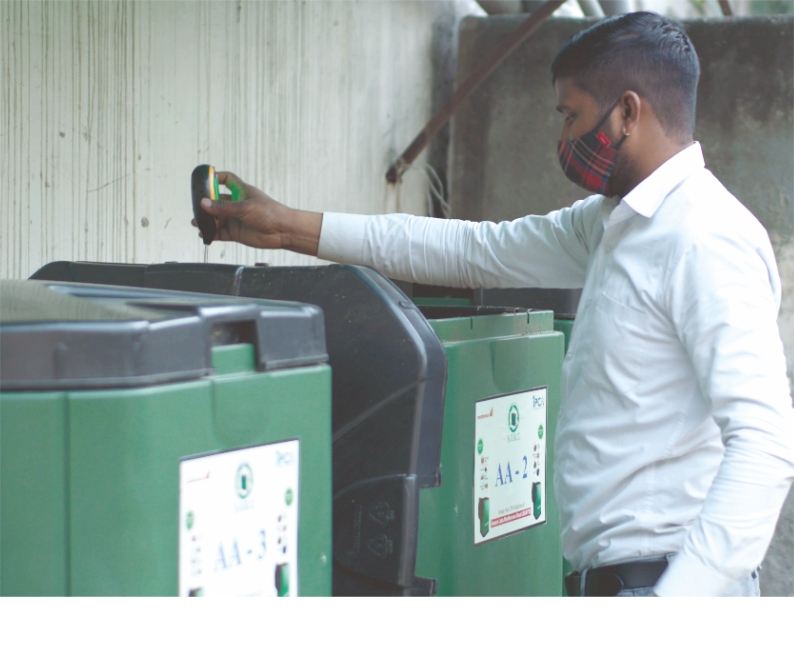Delhi and Noida, like many cities in India, suffers from inefficient Municipal Waste Management and the main problem is lack of waste management plan and lack of involvement of different stakeholders in systematizing waste collection and disposal. In response to this need, IPCA has launched a project “S.O.R.T.” (Segregation of Organic-Waste for Recycling and Treatment) supported by Swarn Lata Motherson Trust in Delhi/NCR. In this project waste will be minimized by source segregation and composting through a Sustainable Approach of Solid Waste Management.
Urban India produces about 62.0 million tons of municipal solid waste annually which translates to 1.69 lakh metric Tons per day (MTD) (Ministry of Housing and Urban Affairs). It is also predicted that this annual volume will increase to 165 million tonnes by 2030. A massive portion of the untreated solid waste is dumped erratically on the outskirts of towns or cities, causing several pollutions including groundwater contamination, air pollution. Therefore, there is a need to detect these irregularities in waste management system which is, mostly, related to collection and transportation of waste. To address this problem, IPCA, in association with its supporting partner, devised a project that tackles these issues efficiently and in a very innovative manner.
Segregation of Waste for recycling and Treatment
Project Segregation of Waste for recycling and Treatment is the flagship project of Motherson Group under its CSR initiative run by Swarn Lata Motherson Trust (SLMTT), which is implemented by Indian Pollution Control Association. The project has successfully been implemented at more than 50 locations in Delhi NCR (including Delhi, Noida, Greater Noida, Ghaziabad and Gurugram). The Project was first implemented in Delhi-NCR in the year 2018 and now, has reached in its fourth phase.
The project was conceptualized with the aim to promote source segregation of waste followed by maximum recovery through onsite treatment of organic waste. Creating awareness, training and capacity building of different stakeholders were the key activities of the project which has resulted in behavioral change of the consumers and increased rate of source segregation.
One of the major components of the project is the installation of Aerobins. More than 200 Aerobins have been installed in over 50 locations across Delhi NCR. The Aerobin is designed as such that it requires no energy input. The only input required is of wet/organic waste from the kitchen or garden. The composter is easy to use and is based on thermal insulation which conserves the internal heat for rapid breakdown of biomass. It employs an aeration core that promotes aerobic decomposition of organic waste. The composting process is free from foul odour and the first compost can be harvested after 40-45 days. The composters installed at the project sites are of 200L or 400L capacity and are operated by a designated operator, who is responsible for its daily operations like feeding organic waste, monitoring the temperature, moisture and harvesting compost.
The composter is easy to use and is based on thermal insulation which conserves the internal heat for rapid breakdown of biomass. It employs an aeration core that promotes aerobic decomposition of organic waste. The composting process is free from foul odour and the first compost can be harvested after 40-45 days.
Action Domains of Project S.O.R.T.

At present, the Project S.O.R.T is operational at 52 locations in Delhi NCR that include residential societies, educational institutes, corporates and embassies. Since the day of implementation, the project has brought behavioural change towards waste management to more than 62,000 people of Delhi NCR and the project treated 1,85,429 kg of organic waste and resulted in making 67,678 kg of organic compost and 10,000 litres of liquid manure.
Operational Process
IPCA takes the lead in the project implementation and undertakes all the steps necessary for successful implementation from conducting preliminary survey for selection of sites, running and facilitating operations and maintenance; providing trainings to the residents and staff to aiding in harvesting, processing and using the organic compost.

Glimpse




